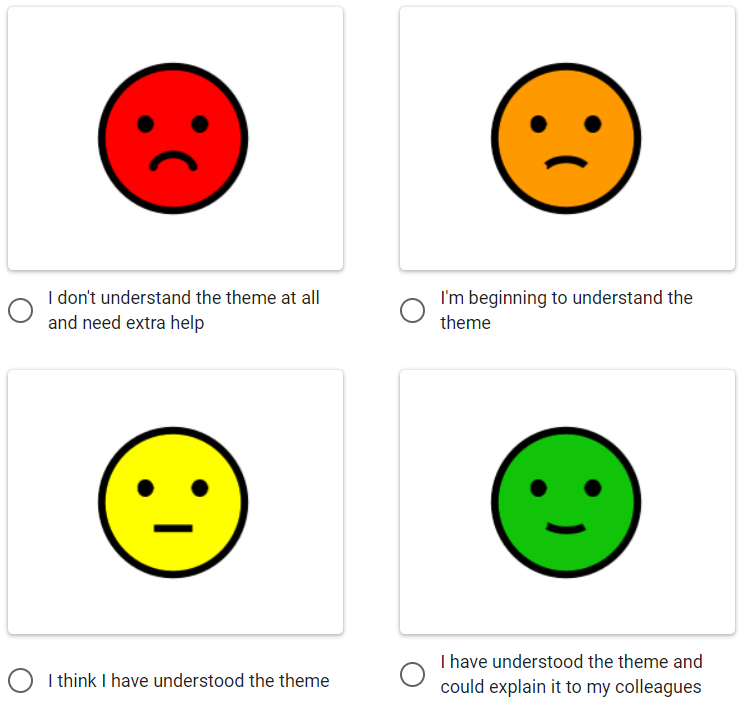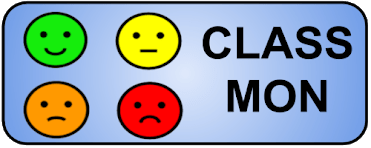 Català (Catalan)
Català (Catalan)  Español (Spanish)
Español (Spanish)
From a video that Christian Negre posted on Twitter (I guess you already follow him @applejux, but if not, what are you waiting for?) About how he uses the Classroom questions to perform a small self-evaluation of the students when he finishes a topic in his subject, I have updated CLASS-MON with a new template. This is the link from Christian’s Tweet where I attached the video.
In fact, all I’ve done is to brazenly copy his idea (that’s why I’m quoting him and making it clear that the proposal is his) and adapt it to CLASS-MON by creating a new template, called UNITS.
CLASS-MON allows you to automate the creation of a form with some emoticons so that students can reflect on what they are learning and how they are learning it.
This new template is designed to be used at the end of a teaching unit or topic, or when there has been sufficient progress. The options offered to learners are as follows.

This allows teachers to capture the learning experience that students have and compare it with the results of the assessment. It will allow us to act in such a way that we do not continue to be biased, to give more support to the students who need it, to detect students who do not know how to make a good assessment (when their feeling does not correspond to the results), etc.
With this staff, CLASS-MON has 4 different templates:
|
ACTIVITIES
|
QUALITATIVE ACTIVITIES
. |
|
FREQUENCY ATTITUDES
|
UNITS OR THEMES
|

